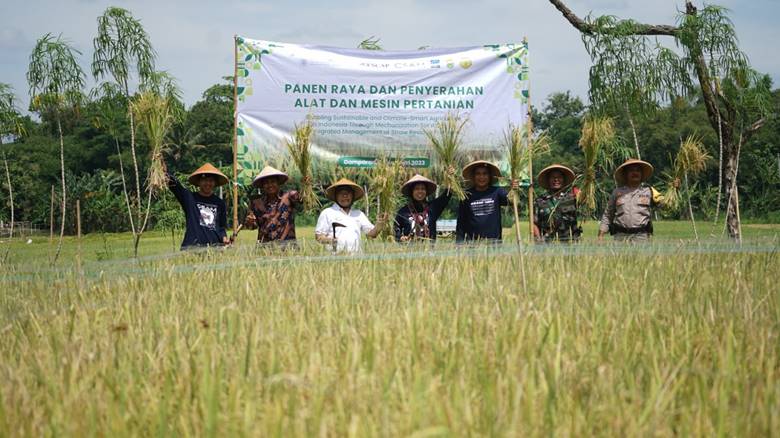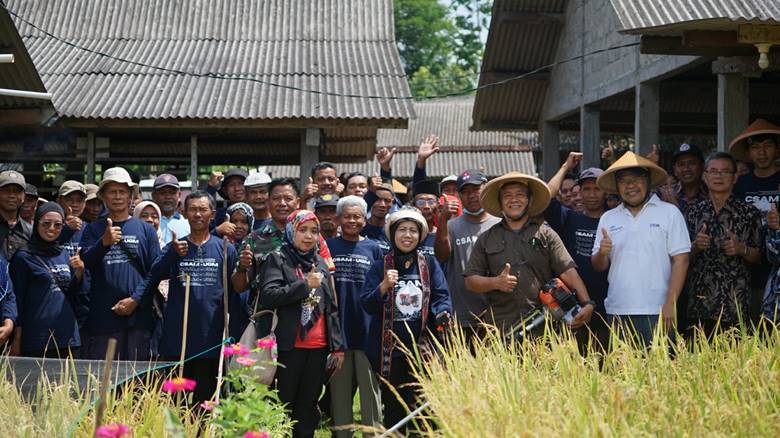CSAM and Partners Organize Workshop in Indonesia to Support Farming Community for Integrated Straw Management
The Centre for Sustainable Agricultural Mechanization (CSAM) of the United Nations Economic and Social Commission for Asia and the Pacific (ESCAP) and the Faculty of Agricultural Technology of Universitas Gadjah Mada co-organized a Workshop-cum-Training on mechanization-based solutions for integrated management of straw residue in Gamparan Hamlet of Prambanan District in Indonesia today.
The burning of crop residue in the field by farmers is an important contributor to air pollution and accelerated Greenhouse Gas emissions in many countries of the Asia-Pacific region. It also hampers agricultural productivity in the long run by adversely affecting soil health and organic matter. The Workshop-cum-Training was organized as part of an ongoing project titled ‘Enabling sustainable and climate-smart agriculture in Cambodia, Indonesia and Nepal through mechanization solutions for integrated management of straw residue and air pollution monitoring’ which seeks to promote application of agricultural machinery and equipment for addressing this problem in support of the relevant Sustainable Development Goals. This project, which is financially supported by the China-ESCAP Cooperation Programme, is being implemented in Indonesia in Sumberharjo, Srimartani, and Japuhan Villages in the Special Region of Yogyakarta Province.
During the event, several experts underscored the importance of mechanization-based solutions for straw burning. Training and live demonstrations were arranged on use of machinery such as handy straw cutter, power thresher, straw pressing machine and straw mower which helped to strengthen the capacities of the farmers. The audience also benefited from a presentation on utilizing satellite imagery and seasonal air pollution modeling to mitigate effects of agricultural burning which drew upon related work being done by ESCAP’s Environment and Development Division.
Speaking on the occasion, Mr. Anshuman Varma, Deputy Head of CSAM, emphasized the “need to test and promote integrated models of utilizing straw, with a focus on enhancing the performance of relevant machinery in specific local contexts”.
The event was attended by around 110 participants including farmers and women’s group members, and a ceremony to celebrate rice harvesting was held on the occasion. During an open discussion, representatives of the local farming community shared their needs and perspectives while expressing a keen interest in adoption of the demonstrated technologies. The importance of addressing the specific needs of smallholder farmers was also reiterated.



